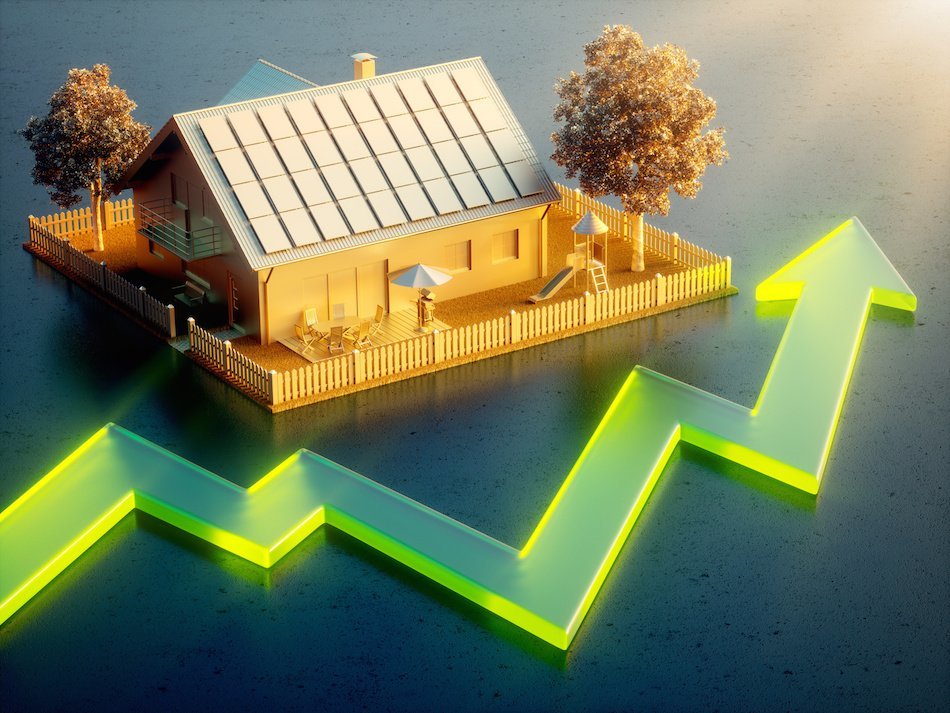How to Spot a Housing Bubble
Posted by Gary Ashton on Wednesday, September 4th, 2019 at 12:57pm.
 The United States has had many housing bubbles and busts through the years. The most recent housing bubble was in the early 2000's with the housing bust beginning in 2007. The dramatic housing price decreases beginning in 2007 created financial hardships for many homeowners, buyers, and professionals in the real estate industry. Since housing prices tend to go up and down, it's important for potential home sellers and buyers to recognize common signs of a housing bubble.
The United States has had many housing bubbles and busts through the years. The most recent housing bubble was in the early 2000's with the housing bust beginning in 2007. The dramatic housing price decreases beginning in 2007 created financial hardships for many homeowners, buyers, and professionals in the real estate industry. Since housing prices tend to go up and down, it's important for potential home sellers and buyers to recognize common signs of a housing bubble.
Increases in Home Prices Outpaces Inflation
People tend to think about their housing payment as a portion of their total income. When prices go up through inflation, each item takes up a correspondingly larger share of a person's income. If the cost of food or transport goes up, many people with a reasonable income can find ways to accommodate it. Should home prices continue to rise at a rate higher than the rest of people's regular expenses, it could eventually start to price buyers out of the market.
Lack of Affordable Housing
Supply and demand seems like a simple concept, but when it comes to housing, it could be very complicated. Some regions of the country regularly experience a tight market for affordable homes and excess inventory of luxury properties. If builders focus on development of more expensive homes, fewer people will be able to buy them. Housing options at lower prices get snapped up quickly, which can make once-affordable homes more expensive, as well.
Stagnant Wages While Housing Prices Continue to Increase
Sometimes, it can feel like the home values of a particular area have little to do with the incomes. In some cases, it is true. Homes in a city or county are not always purchased by people who live in the region. People who live in an area with a higher cost of living might choose to buy investment or vacation properties in places that cost less. This can allow home values to continue to increase, without and occasionally in spite of the average income of the people living in the neighborhood.
High Numbers of Subprime Mortgages
Lenders make money off people with long-term debt, so it is in lenders' interest to ensure that people can still get loans to buy homes. In high cost of living areas like San Francisco, banks and other financial providers may relax their lending standards so that more people can qualify for a mortgage. This means that they may offer loans to borrowers who are less able to make the payments. Laws passed after the housing crisis banned many practices labeled "predatory lending." However, high rates of mortgages made with minimal down payments, to borrowers with limited credit, could indicate that the market is already under duress.
Investors and Flippers are Everywhere
House prices can continue to rise, because there are investors and flippers everywhere looking to make a profit. Even when a home needs extensive work, an investor can look at the property and invest the money needed to flip the home within a few months. Flippers make it more difficult for the average person to find a home that they can afford, as house prices don't remain stagnant. For those looking for a home that needs a little work, it's important to move fast to make an offer on the property. With flippers always looking for the next deal, a house in a great location that is priced for a quick sale is very attractive. Stay on top of the listings in the area and look for a property that fits within a reasonable budget.
Rising Mortgage Interest Rates
Some markets continue to have increased housing costs for years without turning into a housing bubble. The trigger point is the sustainability of the real estate prices in the region. If there are too many homes for sale at prices that most people simply cannot afford, prices will go down. A rise in mortgage interest rates could increase supply by decreasing demand. However, rising interest rates could further the increase the demand for lower priced homes - placing more pressure on this price range of homes. Rising interest rates cause higher mortgage payments, which, in turn, may force potential home buyers to purchase homes in lower price ranges - where supply may already be low.
Buying a Franklin,TN home on the wrong end of a housing bubble could be a problem that buyers may want to avoid. Potential home buyers should look at these factors and other factors to determine the strength or weakness of their local housing market.

Gary Ashton
The Ashton Real Estate Group of RE/MAX Advantage
The #1 RE/MAX team in the World!
